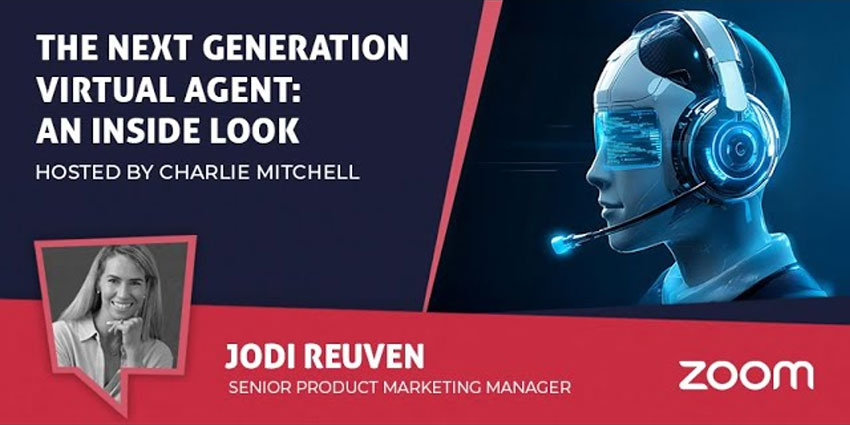Salesforce has secured over 8,000 deals for its Agentforce platform.
Speaking during the company’s Q1 2026 earnings call, CEO Marc Benioff confirmed that more than 4,000 of the deals are paid and that 800 customers are already in production with Agentforce.
At the previous earnings call in February of this year, Benioff revealed that the vendor had closed 5,000 Agentforce deals, meaning the CRM giant has added an additional 3,000 in the past three months.
In terms of the bottom line, this business equates to $100 million in annual recurring revenue for Agentforce.
In discussing how Agentforce has performed so far, Benioff stated that he sees the tool as the “number one agent platform already, and it’s only been a few months.
In fact, AgentForce reached more than $100,000,000 in AOV. It’s much faster than any product in our history, and we’re not even fully deployed in all geographies, currencies, or languages.
However, while the figures sound impressive and Benioff continues to sing the solution’s praises, it is important to note that Salesforce has over 150,000 customers. So, it has only managed to penetrate a small percentage of its client base.
Moreover, many customers are purchasing bundled packages that include Agentforce, meaning they may not be actively using the tool.
Whys Is Agentforce Struggling to Live Up to the Hype?
There are several reasons for Agentforce’s slower than expected adoption rate, chief amongst them being the level of hype that Salesforce has built around the solution.
The intensity in the marketing of Agentforce has been hard to miss and has helped to generate significant excitement for the platform.
Yet, this enthusiasm may have led to a misaligning of expectations, with the performance not living up to the promise.
Many stakeholders, including customers and consultancies, may not be adequately prepared for implementation, leading to potential issues like technical debt and underdeveloped agents.
Shortcomings with data have also proved to be something of a sticking point, as implementing Agentforce necessitates thorough preparation, including ensuring data quality and readiness.
Successful deployment of Agentforce relies heavily on high-quality, well-governed data.
While this is primarily the responsibility of the company looking to deploy Agentforce, it could be argued that Salesforce has failed to adequately emphasize the importance of a company’s pre-existing data infrastructure, which has led to suboptimal performance for some customers.
Another key bone of contention has been the pricing model for Agentforce, which starts at $2 per conversation with additional costs for Data Cloud credits.
This led to confusion about what qualifies as a “conversation” and raised concerns that the pricing was too high for many agentic AI use cases.
Although it is clear that Salesforce is encountering several stumbling blocks when it comes to punching through with Agentforce, it is equally clear that the CRM giant is actively looking to solve these issues.
Take the pricing situation, for example, Salesforce has already remedied this by introducing a new ‘Flex Credits’ pricing system.
Flex Credits use a pay-as-you-go model, where customers are charged per Agentforce action – each costing $0.10 – offering greater flexibility by linking costs to actual usage.
Indeed, while Benioff did not outwardly admit to Agentforce’s adoption issues during the earnings call, he did allude to it, stating:
We’re learning a lot about how to make agents successful, productive, how to scale, how to tune our own organization and really get our customers ready for this AI transformation in the enterprise led by agents.
Another way in which Salesforce may be able to help get its customers ready is with the recent $8 billion acquisition of Informatica.
Given Informatica’s data credentials, the deal could be seen as an admittance that Salesforce customers need help managing their data to fully realize Agentforce’s potential.
Challenges often stem from disconnected or messy backend data, making it hard to scale AI agents beyond limited tasks.
While Salesforce offers Data Cloud, its effectiveness depends on clean, well-integrated data. Informatica addresses this by providing enterprise-wide data validation, supporting better data quality across the organization.
Salesforce showed interest in acquiring Informatica in early 2024 but stepped back due to disagreements over price.
Since then, Informatica’s stock has fallen by over a third, prompting Salesforce to move forward with the deal that will see shareholders receive $25 in cash per share.
Key Figures from the Call
Away from Agentforce, Salesforce delivered strong results in Q1 2026, reporting $9.83 billion in revenue – an eight percent increase YoY.
The company also raised its full-year revenue forecast by $400 million, projecting up to $41.3 billion.
Additionally, Salesforce posted a solid non-GAAP operating margin of 32.3 percent for the quarter.







